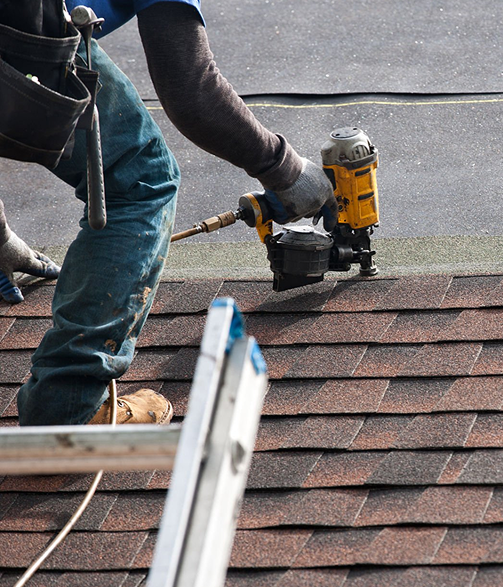City/Community Specific Florida Roofing Guides
When Is Roof Replacement Necessary in Florida?
Florida’s unpredictable weather takes a toll on roofs, often leading to a shorter lifespan compared to those in other states. Replacing your roof at the right time can prevent costly repairs and extensive damage. Signs that your roof might need replacing include:
- Frequent leaks or water stains
- Curling or missing shingles
- A sagging roofline
- The buildup of moss or mold
When your roof reaches 15 to 20 years of age, it’s wise to pay close attention and consider a replacement. Whether you’re in need of roof replacement in Dunnellon or another nearby town, spotting these issues early can save money and hassle.
With Florida’s hurricane threats and heavy rain, early detection and timely replacement are essential. Procrastinating can lead to further water damage in the affected area, increasing the complexity and cost of minor repairs. Promptly addressing issues keeps your roof a strong barrier against the elements and ensures that it can be repaired effectively.
Proactive roof replacement not only protects your home’s roof but also enhances its value and energy efficiency, contributing to your home’s curb appeal. Regular inspections allow you to catch problems early, making replacement more manageable and cost-effective.
Choosing the Right Roofing Materials in Florida
Choosing the right roofing material significantly impacts your roof’s longevity and performance. Florida homeowners have several popular options to choose from, each with its own benefits and drawbacks. Common choices include:
- Asphalt shingles
- Metal roofing
- Clay or concrete tiles
- Flat roofing materials.
Knowing the characteristics of each material helps in making an informed decision that may vary depending on your needs and budget. If you are considering roof replacement in Ocklawaha, for example, choosing wind-resistant materials can be especially important.
Asphalt Shingles
Asphalt shingles and architectural shingles are the most affordable and widely used roofing material in Florida. They typically last between 15 and 20 years, making them a cost-effective choice for many homeowners. Some models of asphalt shingles offer wind resistance up to 130 mph, which is particularly beneficial in hurricane-prone areas. A shingle roof can be an excellent option for those looking to enhance their roofing.
However, due to Florida’s intense sun and heavy rains, asphalt shingles may require more frequent maintenance and replacement compared to other materials. However, their affordability and ease of installation make them popular among Florida homeowners, including those planning a roof replacement in Belleview.
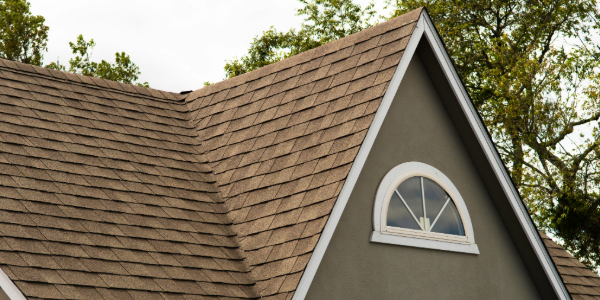
Metal Roofing
Metal roofing is highly durable and reflects heat well, making it an excellent option for Florida homes. These roofs can last anywhere from 40 to 70 years, providing long-term peace of mind. Metal roofs are also great for hurricane-prone areas due to their ability to withstand high winds and heavy rains. Additionally, metal and tile roofs offer a stylish alternative for homeowners looking to enhance their property’s aesthetic appeal.
Although metal roofing has a higher initial cost than asphalt shingles, its longevity and low maintenance often make it cost-effective in the long run. For premium projects like roof replacement in Reddick, metal roofing offers long-term reliability.
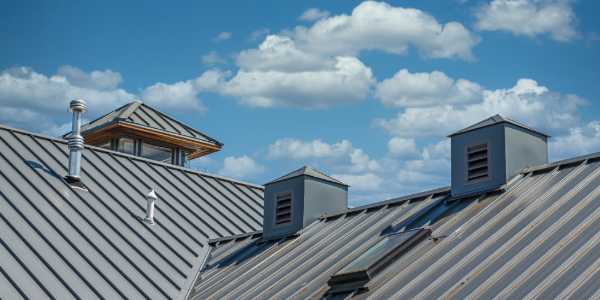
Clay or Concrete Tiles
Clay or concrete tiles offer excellent longevity, often lasting over 50 years with proper maintenance. These tiles are particularly popular for Mediterranean-style homes, adding a distinctive aesthetic appeal that many homeowners find attractive.
However, due to their weight, clay or concrete tiles may require additional roof reinforcement, which can add to the overall cost of the roof replacement. Their durability and visual appeal make them a worthwhile investment for many Florida homeowners, including those seeking roof replacement in Silver Springs.
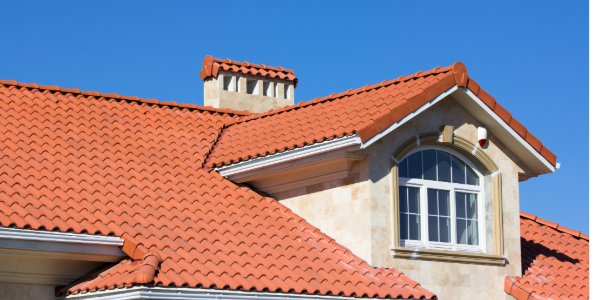
Flat Roofing (TPO, PVC, Modified Bitumen)
Flat roofing materials like TPO, PVC, and modified bitumen are commonly used on low-slope or flat roofs. These materials are designed to be UV and weather-resistant, making them suitable for Florida’s climate.
The cost and lifespan of flat roofing materials can vary, so it’s important to consult with a qualified roofing contractor to determine the best option for your home. These materials offer a practical solution for specific roof designs, and they are often chosen for newer subdivisions considering roof replacement in Marion Oaks.
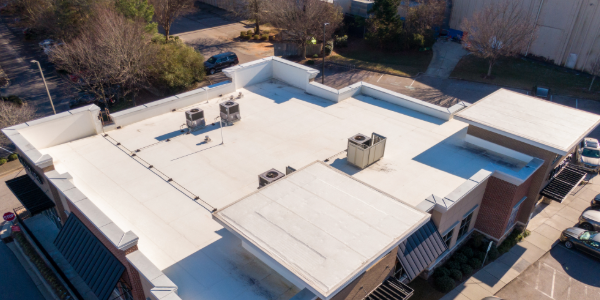
Not sure which system fits your home? Compare shingles, metal, and tile in our Ocala roofing materials section.
Permit Requirements for Roof Replacement in Florida
In Florida, a permit for roof replacement is typically required, requiring replacement to comply with the Florida Building Code and Florida’s roofing laws. This ensures updated standards for wind resistance are met, crucial in a hurricane-prone state. Local county or city building departments issue permits, which your licensed roofing contractor usually handles.
Inspections before and after roof replacement ensure the work meets all code requirements and maintains the structural integrity of the new roof, including a professional inspection of the roofing system. This process protects homeowners by ensuring the new roof is installed correctly and can withstand Florida’s extreme weather conditions.
How Much Does Roof Replacement Cost in Florida?
The average roof replacement cost in Florida ranges from $8,000 to $20,000+, depending on factors such as the size of the roof, the type of materials used, and the complexity of the installation.
Cost Influencers:
Several factors significantly impact the cost of roof replacement. The size of the roof, measured in squares (one square equals 100 square feet), plays a major role. Material type also influences cost, with shingles being generally less expensive than tile or metal roofing.
Other cost influencers include:
- Roof pitch
- Number of layers
- Labor availability
- Season
- Permit and inspection fees
Recognizing these various factors helps in better estimating roof replacement costs and budgeting accordingly.
Before you compare bids, scan The Villages new roof cost details to see how tear-off, SWR underlayment, and lanai tie-ins affect the final number.
Sample Cost Ranges (per 2,000 sq ft roof):
- Asphalt Shingles: $7,000 – $10,000
- Metal Roofing: $14,000 – $22,000
- Clay Tile Roofing: $16,000 – $30,000
Is Roof Replacement Covered by Insurance in Florida?
Roof replacement may be covered by insurance in the following cases:
- Damage caused by wind or hail storms
- Damage caused by hurricanes
- Roof damage caused by fallen trees
- Sudden leaks that could lead to major damage to the entire roof
However, insurance generally does not cover roof replacements for general wear and tear, which may lead insurers to deny coverage in certain situations.

Florida insurers heavily assess your roof’s age when determining coverage. Key points to consider are:
- Many insurers will not cover roofs older than 15 years without an inspection.
- Some will charge higher premiums for older roofs.
- It is important to check with your insurance company to understand your policy and coverage.
Choosing a Licensed Florida Roofing Contractor
Given its value, hiring a licensed and experienced roofing contractor is crucial for every homeowner. Unlicensed or inexperienced contractors can put your home at risk and may not adhere to Florida’s stringent building codes.
When making your selection, verify the following:
- A contractor’s state license through the Florida Department of Business and Professional Regulation (DBPR).
- Proof of insurance, including liability and workers’ compensation.
- A workmanship warranty.
- Local references or Google reviews to provide proof of an informed decision, in accordance with state laws and Florida law.
These steps help you find a qualified contractor who delivers quality work and protects your investment.
Insights. Ideas. In Your Inbox
Roof Replacement Timeline: What to Expect
Roof replacement typically involves the following steps:
- Inspection and estimate
- Obtaining necessary permits
- Delivery of materials
- Site preparation
- Tearing off the old roof
- Installing the new roof, which usually takes 1 to 3 days depending on size and complexity.
After installation, a final inspection ensures the work meets all current code requirements and code compliance. Weather delays are common, especially during hurricane season, so plan accordingly.
Curious how long each step takes? Walk through the Marion Oaks roofing timeline from quote to final inspection.
Conclusion: Plan Your Florida Roof Replacement with Confidence
Replacing your roof in Florida involves decisions that affect your home’s value, safety, and energy efficiency. Thorough preparation, from selecting materials to navigating permits and understanding costs, is key to a successful roof replacement.
This comprehensive guide equips you with the knowledge to approach roof replacement confidently. Being informed and proactive ensures your new roof and entire roofing system withstand Florida’s harsh climate and enhances your home’s performance, including the option for a full roof replacement.

